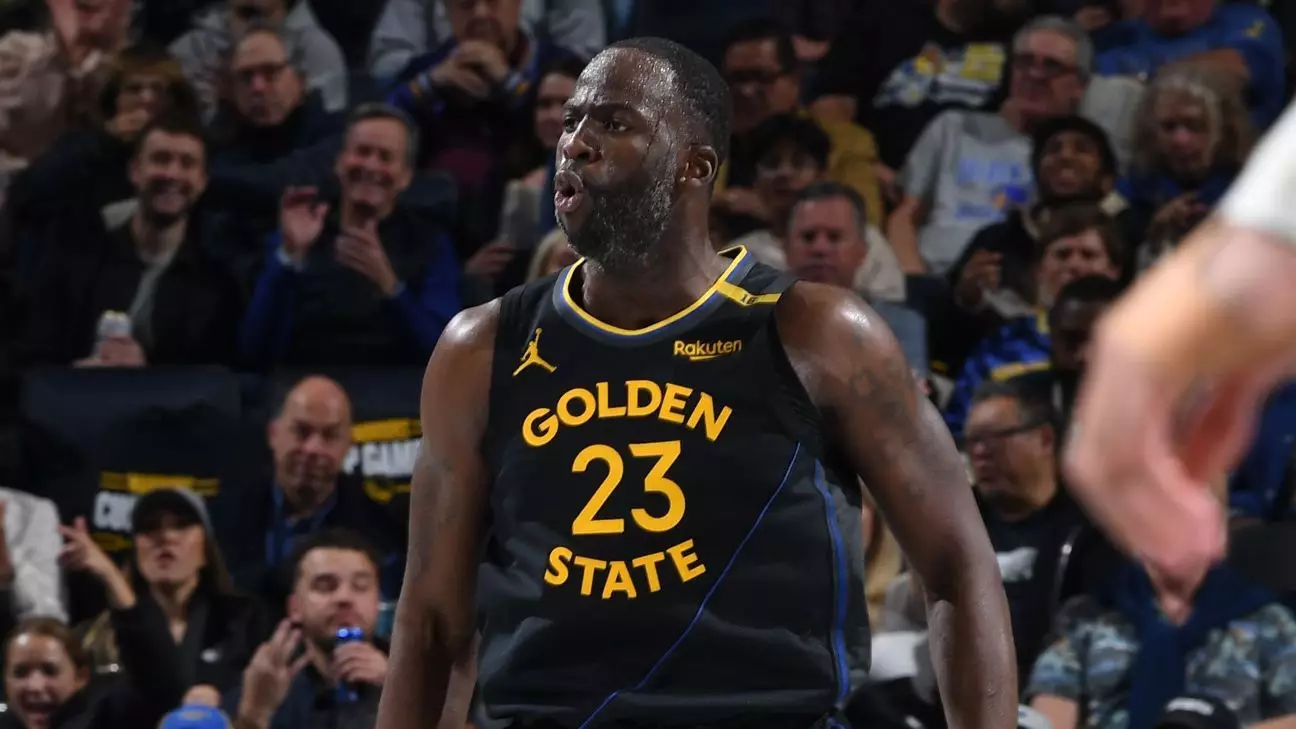In recent events surrounding the Golden State Warriors, the narrative of team dynamics and personal accountability has taken a poignant turn. Draymond Green, the outspoken star forward for the Warriors, has issued an apology for his infamous altercation with former teammate Jordan Poole. This incident, arising over two years ago during a preseason practice, serves as a reflection of not only Green’s personal journey but also the broader context of sportsmanship and the complexities of team interactions.
The original altercation between Green and Poole was not just a mere scuffle; it was an event that reverberated throughout the Warriors’ locker room and the NBA community at large. The dynamics shifted dramatically following the incident, which occurred after the Warriors had celebrated a successful championship season. A leaked video demonstrated the intensity of the confrontation, encapsulating a moment of emotional conflict that many would argue reflected deeper issues within the team.
Green’s recent comments on “The Draymond Green Show” indicate his desire to move past this moment. He expressed regret over his actions, admitting, “I shouldn’t have punched him. But it happened.” This acknowledgment of wrongdoing is essential in the redemption narrative; however, it also raises questions about the inherent pressures faced by professional athletes within the competitive environment of the league.
Green’s statement regarding Poole’s recent remarks suggests a struggle common in personal relationships—how to address unresolved conflicts without reigniting tensions. He implies that Poole’s comment could be seen as an attempt to elicit sympathy or provoke a renewed discussion on the past incident, which Green feels is unnecessary. His desire to move on resonates with the psychological principle that unresolved conflicts can linger and impact future interactions.
Adding to the layers of this conflict is the notion of accountability. Green highlighted a belief that both parties share responsibility in the dynamic of their interactions, reflecting a complex truth that disagreements in high-stakes environments can rarely be attributed to a single party’s actions. This perspective fosters a more nuanced understanding of how personal and professional relationships can be complicated by emotional responses to provocation.
The fallout of the incident has propelled Green into a period of reflection and growth. Following the altercation, he has faced subsequent suspensions that called into question his conduct both on and off the court. Notably, his experiences led him to seek counseling and engage in therapeutic practices, including mandatory check-ins with league and team executives. Green has embraced these challenges as learning opportunities and is now emphasizing the importance of accountability in his personal development.
“Regardless of how I felt about… any situation, I took it on the chin,” Green expressed, revealing his commitment to growth amid adversity. It is a reminder that even elite athletes are not exempt from the need for personal introspection and improvement. By advocating for accountability, Green is not only navigating his journey but also setting an example for his peers and younger players in the league.
Moving Forward with Purpose
As the current season progresses, Green’s evolution as both a player and a person becomes increasingly evident. With his candid reflections, including the disclosure of having various therapists and a sports psychologist, he is cultivating a mindset geared towards personal betterment. The contrast between his current season performance—marked by fewer ejections compared to the past—underscores this transformation.
The narrative surrounding Green and Poole transcends a simple punch; it offers insights into the delicate interplay of emotions, accountability, and the hopes for redemption within the razor-thin margins of professional sports. The acknowledgment of mistakes is paramount, and Green’s journey illustrates that such admissions can lead to a better understanding of oneself and the shared experiences of teamwork.
Draymond Green’s apology for punching Jordan Poole symbolizes more than just an attempt to mend fences; it embodies a significant personal evolution and lessons on accountability. It is a poignant reminder of the complexities present in the high-stakes world of professional sports, where emotions can run high, but with growth comes the opportunity for deeper relationships and improved dynamics within teams. Over time, the story of redemption may serve as an essential lesson for all athletes navigating the challenges of their careers.

